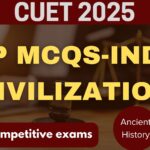Kelsen’s Pure Theory of Law
Hans Kelsen’s Pure Theory of Law aims to describe and analyze law independently of moral, political, or social influences. This approach is often called a “positivist” theory, focusing on what the law is rather than what it ought to be. Here are the key principles of Kelsen’s theory:
1. Law as a Normative System
Kelsen defines law as a system of norms or rules that dictate certain behaviors or obligations. Each legal rule is a norm that prescribes what ought to happen if certain conditions are met, such as penalties for certain actions.
2. The Separation of Law and Morality
Kelsen emphasizes a clear distinction between law and morality. For him, the validity of a legal norm does not depend on its moral value. A law can be valid even if it’s morally questionable, as long as it is part of the legal order.
3. The Basic Norm (Grundnorm)
The Grundnorm or “basic norm” is a hypothetical fundamental norm from which all other norms in a legal system derive their authority. This basic norm provides the foundation for the validity of all other legal norms within a given legal system, though it is itself not derived from any other norm within that system.
4. Hierarchy of Norms
Kelsen proposes a hierarchical structure of norms where lower-level norms (such as statutes) derive their validity from higher-level norms (such as constitutions). This structure ensures that the entire legal system is grounded in the Grundnorm.
5. Law as Science
Kelsen views legal science as a way to objectively study law as a normative system, much like the natural sciences study the physical world. He believed law could be studied “purely,” without influence from external factors like politics or sociology.
6. No Room for Subjective Interpretation
In his pure theory, Kelsen argues that legal interpretation should be as objective as possible, avoiding subjective values or the interpreter’s personal beliefs. Legal science should focus on describing and interpreting the law, not judging it.
Summary
Kelsen’s Pure Theory of Law provides a systematic way to understand law strictly as an autonomous field, free from external ethical, political, or social considerations. This approach had a profound impact on legal theory, especially in shaping the study of law as a normative science.
You May Also Like:
You May Also Like:
Relationship between Law and Morals
Difference between Austin and Kelson
Euthanasia in India, Right to die with Dignity
Right to Privacy Case Law Mr. X vs. Hospital Z
Federal Constitution Definition and key points
University of Madras vs. Shantabai,1954: Article 12 Case Law
Article 20 Fundamental Right with Case Laws
Article 19 Fundamental Right of Indian Constitution with 10 Case Laws
Article 358, 359 Fundamental rights during emergency
Parliamentary Privileges and Fundamental Rights with Case Laws
Article 14 Fundamental Right with Case Laws
Article 15 Fundamental Right with Case Laws
Article 12 Fundamental Right with Case Laws
DOMESTIC VIOLENCE AS TORT | APPLICATION OF TORT LAW
Crimes without Mens Rea? Statute without Mens Rea.
Definition of crime by various jurists, Criminology
Methods of Studying Criminology
All about Capital Punishment with Case Laws
IMPOSSIBLE ATTEMPT | ATTEMPT VS IMPOSSIBLE ATTEMPT
Difference between Preparation and Attempt
Tests to Determine Attempt and preparation | With Case Laws
Difference between intention and motive | In Tabular Format
Forms of Judicial Process: Adversarial & Inquisitorial
Crimes without Mens Rea? Statute without Mens Rea.
IMPOSSIBLE ATTEMPT | ATTEMPT VS IMPOSSIBLE ATTEMPT
Mistake of Fact Vs. Mistake of Law | Sec. 76 of IPC
Indian Penal Code MCQs Quiz: Section 1 to 5
Indian Panel Code MCQs Quiz on Section 511 and Attempt
IPC MCQs Quiz on Sec. 76 and Sec. 79 | Quiz on Mistake
Practice IPC MCQs online for free (Section 78)
Practice IPC MCQs Quiz for free | Section 81 MCQs | Necessity
Practice IPC MCQs online for free : Infancy (section 82-83)
Practice IPC MCQs Quiz for free | Section 81 MCQs | Necessity
Practice IPC MCQs Quiz for free | Section 84 MCQs | Insanity
Practice IPC MCQs Quiz for free | IPC Section 85 MCQs | Intoxication
Difference between tort and crime | Previous Notes
DOMESTIC VIOLENCE AS TORT | APPLICATION OF TORT LAW
Economic Tort | Business Tort: Application of Tort Law
Difference between intention and motive | In Tabular Format
Bolam Test | Bolam V. Friern Hospital Committee | Medical Negligence
Jacob Mathew V. State of Punjab Case Law | Medical Negligence
Medical Negligence in tort | Case Laws
Contributory Negligence | Law of Tort | Case Laws
Essential conditions of liability for negligence | Negligence in torts
Specific Principles of Criminal Law | LLM Previous Year Paper 2024 | CCSU
Specific Torts | LLM 4th Semester Previous Year Paper 2024 | CCSU
History and Basic Principles of Criminal Law | Previous Paper 2023
LLM Previous Year Paper 2023 | PRIVILEGED CLASS DEVIANCE
PENOLOGY PREVIOUS YEAR PAPER | LLM | CCSU
LL.M Previous Year Paper 2023: Legal Education & Research Methodology
LL.M Previous Year Paper 2023: Jurisprudence-I Download Now!
LL.M Previous Year Paper 2023: Indian Constitution! Download Now!
LLB Previous Year Paper 2023 | Constitutional Law II | CCSU
LLB Previous Year Paper 2023 | Legal and Constitutional History | CCSU
LLB Previous Year Paper 2023 | Jurisprudence II | CCSU


















Leave a Reply